April 2022 – COA Patient Advocacy Network News Bulletin
Advocacy Chats – Insightful Conversations on Policy Issues & Cancer Research
Addressing Equity in the Health Care System: A CPAN Advocacy Chat
Discrimination of any kind leads to a lower quality of life. How can the health care system become more equitable, encourage patients to seek treatment, and create better health outcomes that improve their quality of life? On April 13th, Alan Balch, PhD, CEO of the Patient Advocate Foundation and National Patient Advocate Foundation, joined COA Director of Patient Advocacy and Education, Rose Gerber to explore the effects of discrimination in the health care system and what can be done to increase equity. View the entire video here.
What Is High-Quality Cancer Care? A CPAN Advocacy Chat
What does high-quality cancer care mean and how does a community oncology practice achieve and maintain this standard? Bo Gamble, COA Director of Practice and Quality Initiatives, joined COA’s Rose Gerber to discuss these issues and the challenges of managing competing care standards and ensuring the patient’s voice is heard. Stream it on @OncologyCOA’s YouTube channel today.
Understanding Advocacy in a Community Oncology Setting – The Different Audiences for Advocacy
Advocates aren’t limited to policymaker outreach to affect meaningful change. They can engage with members of the traditional media, online influencers, and peers or members of the community to extend their reach and amplify the voice of the movement. While policymakers and members of their staff are the primary advocacy target, engaging with each “advocacy audience” is essential to building broader support for a cause and reaching elected officials effectively.
Members of the traditional media can help amplify advocates’ messages, online influencers can recruit followers to advocate for change, and social media outreach can extend advocacy beyond one’s own physical community. Peers and other members of the community, such as doctors or other figures, can help create grassroots movements that bring new advocates to the cause. As each audience becomes engaged, more advocates will join the cause and help influence policymakers to enact change.
- Learn more about community oncology, the challenges that practices face, and how you can get involved by visiting CPAN’s Education & Resources library.
Cancer News You Can Use
It’s National Minority Health Month. These Are The Conditions Affecting Black Women The Most
Essence 04/06
April marks the start of National Minority Health Month, a time of year dedicated to boosting awareness around the health disparities and illnesses that disproportionately impact individuals of racial and ethnic minority groups. In the effort to raise awareness around the health issues that impact our community, we’ve put together a list of some of the often overlooked or most pressing health conditions and diseases that impact Black women and our community at large.
The Pandemic Made Cancer Disparities Worse
Axios 04/02
A recent study of 3,506 cancer patients shows “significantly higher COVID-19 severity” among African Americans than white cancer patients, bolstering similar findings from an earlier 2020 study of 73.4 million electronic health records. Black cancer patients also experienced delays in radiotherapy sessions and in access to novel anti-COVID therapies like remdesivir—instead often receiving hydroxychloroquine, later found to be ineffective.
Lung Cancer CT Scans Have Already Saved More Than 10,000 U.S. Lives
HealthDay 03/31
More than 10,000 American lives have been saved since lung cancer screening was introduced for high-risk people who are over 55 and have a history of smoking, a new study shows. But many poor people and those in ethnic/racial minority groups are still missing out on the benefits of screening for the world’s leading cause of cancer death, researchers noted.
Artificial Sweeteners Used In Diet Sodas And Snacks Linked To A Higher Risk Of Cancer, Study Finds
Insider 03/29
Artificial sweeteners like aspartame may be associated with increased risk of certain cancers, according to a study published Thursday in PLOS Medicine. Researchers found that participants who consumed the most artificial sweeteners had a 13% as high risk of developing cancer compared with those who didn’t consume artificial sweeteners.
Colorectal Cancer Screenings Urged As US Deaths Could Top 52,000 This Year
ABC News 03/13
Colorectal cancer is expected to claim the lives of more than 52,000 Americans this year, according to the American Cancer Society. This is why, as the world tries to return to a sort of normalcy after the COVID-19 pandemic, doctors say health screenings – particularly for cancer – should be an urgent priority.
Community Oncology 101 – What is Prior Authorization?
Prior authorization in cancer care can cause harmful, even life-threatening delays in treatment for patients. Learn more about prior authorization’s impact on cancer care delivery in this edition of Community Oncology 101
Resources for Chapters
When Terry Purdom, a cancer patient with Multiple Myeloma, lost his job and health insurance, the community oncology professionals at the Center for Cancer and Blood Disorders in Fort Worth, Texas didn’t give up. Dr. Harold Mandell and the Center’s committed staff found ways to continue his treatment free of charge, providing Terry with constant and necessary support.
Thousands of Americans like Terry receive cancer treatment in community oncology clinics each year, and each has a story. These inspiring stories from patients who were treated in a community oncology setting show what sets it apart from other cancer care options.
Recent News & Updates
I never watched the Nineties drama Dawson’s Creek — back then I was more into Buffy the Vampire Slayer — but the recent death of James Van Der Beek, one of the stars of the show, piqued my interest.
In medicine, doctors are taught to look first for the most common explanations behind symptoms.
In the United States and elsewhere, there’s been a major shift in patients treated for lung cancer.
A growing body of research has linked diet and exercise to cancer risk. Harvard T.H. Chan School of Public Health’s Edward Giovannucci was one of the experts quoted in a Jan. 27 New York Times article on the latest findings.
